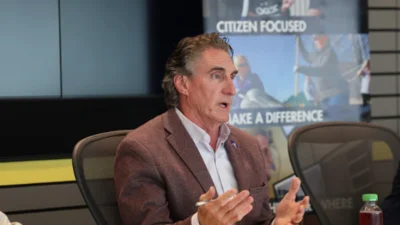WASHINGTON, DC - In response to bipartisan requests from governors across the nation, leaders in the House and Senate today introduced the State Flexibility Act. The bill repeals the Medicaid Maintenance of Effort requirements first imposed in the stimulus and eventually incorporated into the health care law; these rules prevent governors from improving verification measures and better targeting their investments to serve those individuals most in need. The State Flexibility Act will allow states to make common-sense decisions to provide services to those most in need, balance their budgets, root out waste, fraud and abuse, and lower federal entitlement spending. According to the Congressional Budget Office, the bill will save taxpayers $2.1 billion over 10 years.
The bicameral legislation was introduced in the House by Representative Phil Gingrey (R-GA) and Representative Cathy McMorris Rodgers (R-WA), both members of the Energy and Commerce Committee, and in the Senate by Senator Orrin Hatch (R-UT), ranking member of the Senate Finance Committee.
“With states facing $175 billion shortfalls over the next two years, states are telling Washington to get out of the way and looking for flexibility to manage escalating Medicaid costs. The Obama administration has supported and implemented a series of strong-handed federal mandates that are causing states the unnecessary burden of tremendous bureaucracy, little flexibility, and unbearable costs.
“The State Flexibility Act begins to release Washington’s strong grip and allows governors and state legislators to manage their Medicaid programs in a sustainable manner," said House Energy and Commerce Committee Chairman Fred Upton (R-MI), an original cosponsor of the legislation.
The House Energy and Commerce Committee and Senate Finance Committee today released a joint review of states’ perspectives.



